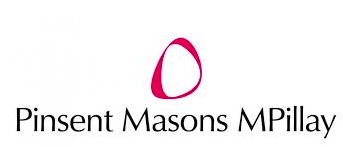31 January, 2019
Copyright law in Singapore is to be modernised for the digital age, the government in the city state has confirmed.
The Ministry of Law set out details of the changes that it plans to make to the existing Copyright Act in Singapore in a new report published on Thursday.
The proposals for reform (70-page / 1.19MB PDF) have been shaped by feedback received from two earlier consultations the Ministry of Law held on the issue, including in 2016.
"The changes that will be introduced under this review will help creators and users, whether individuals or businesses, adapt to and thrive in the current digital environment and support Singapore’s broader objectives of catalysing digital innovation and ensuring that all segments of society benefit from new and emerging digital technologies," the Ministry of Law said in its new report.
"We recognise that the dynamic and fast-paced nature of developments in the field of copyright and collective rights management would require us to continually monitor the implementation of our conclusions for their effectiveness as well as for possible improvements. We will also monitor developments for any further issues that may arise in future and require our attention, to ensure that our copyright system continues to be fit for purpose," it said.
Under the changes, the existing 'fair use' defence to copyright infringement will be amended, and other new exceptions to infringement will be introduced into Singapore law.
One of the new copyright exceptions that will be introduced will provide new qualified rights to both businesses and non-commercial researchers to copy data protected by copyright for the purpose of analysing it.
The Ministry of Law explained that this exception would only apply if those wishing to analyse the data "have lawful access to the works that are copied". This means that if information is only accessible through subscription then the user must have paid to access the information before they will be entitled to copy it for data analysis purposes, according to the report.
The introduction of the new data analysis exception will, though, not prohibit copyright owners from "taking reasonable measures to maintain the security and stability of their computer system or network", the Ministry said.
Under the reforms planned, creators of copyright works will also be given a new non-transferable right to be attributed when their works are used, even if they have sold the copyright to someone else.
The Ministry of Law confirmed, however, that the right to attribution will not apply to certain types of works, including computer programmes, and that "specific defences" to the attribution right will be available under the new regime. One defence will apply in the context of the reporting of current events. The Ministry also said the attribution right will be able to be waived in writing and that the updated law would ensure "consent can be given to acts that would otherwise infringe the right".
The new framework will also provide default rights of copyright ownership to those commissioned to develop new works. Currently, copyright automatically subsists with the commissioning party, but under the new regime they will need to obtain written agreement from the creator to own the copyright in the works they commission.
Among the other changes that will be implemented are new rules to make it a criminal offence to "wilfully make, import for sale, commercially distribute or sell" TV set-top boxes or other devices or software that will enable access to audio-visual content from unauthorised sources.
The Ministry of Law also confirmed it plans to restructure the Copyright Act and will be "revising the language used to make it more readable and understandable". No date has yet been set for tabling the legislative changes.
"When ready, the draft legislative bill will be made available to the public for comments on the implementation details," the Ministry of Law said. "We would welcome interested parties to provide their views on the draft bill then."
For further information please contact:
Bryan Tan, Partner, Pinsent Masons MPillay
bryan.tan@pinsentmasons.com





